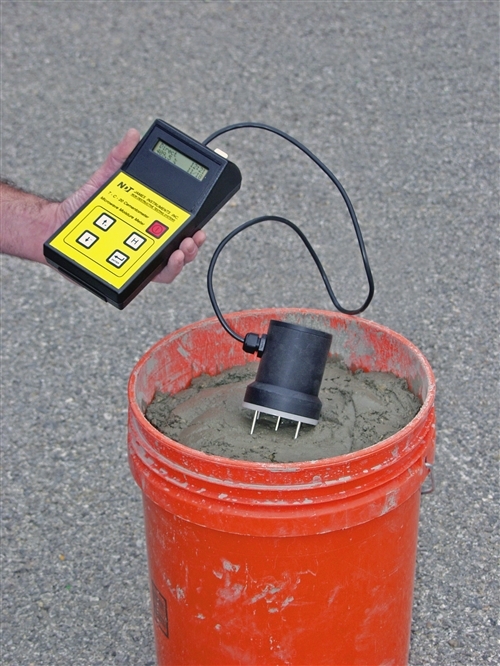How to Utilize a Moisture Meter to Discover Hidden Water Damages in Your Building
How to Utilize a Moisture Meter to Discover Hidden Water Damages in Your Building
Blog Article
The Ultimate Guide to Wetness Meters: A Comprehensive Review and Just How They Can Conserve You Money
Dampness meters offer as vital tools in detecting and checking moisture material in products, aiding in preventing costly damages and making sure the quality of items. Recognizing the subtleties of various kinds of wetness meters, their applications, and the possible cost-saving advantages they supply can be a game-changer for specialists and organizations alike.
Kinds Of Moisture Meters
Different sorts of wetness meters are readily available for various applications in various sectors. One typical type is the pin-type moisture meter, which gauges the electric resistance between 2 pins put right into a product. This type appropriates for timber, drywall, and other structure materials. Pinless wetness meters, on the other hand, usage electro-magnetic sensor plates to check a larger location without triggering damage to the material's surface area. Moisture Meter. These meters are perfect for quickly analyzing moisture levels in big areas such as wall surfaces and floors.

Furthermore, there are likewise specialty wetness meters created for particular products like grain, soil, or hay. These meters give exact wetness analyses tailored to the special homes of the material being tested. Infrared dampness meters measure the thermal residential properties of a product to identify its moisture web content non-invasively, making them helpful for applications where pin or pinless meters may not appropriate. Comprehending the different types of moisture meters offered can aid markets select the most ideal tool for their certain moisture dimension demands.

Advantages of Making Use Of Dampness Meters
Moisture meters use indispensable benefits in properly keeping an eye on and assessing dampness levels in diverse products and settings (Moisture Meter). Among the main benefits of using dampness meters is the prevention of potential damage brought on by excess wetness. By spotting and dealing with high moisture levels at an early stage, moisture meters assist to protect against mold development, rot, and architectural damages in buildings, conserving both money and time on repair work. Additionally, moisture meters help in guaranteeing the quality of materials throughout construction or production processes. By properly determining dampness material, these tools aid preserve the integrity of wood, drywall, concrete, and other products, minimizing the danger of flaws or failures.
Moreover, using moisture meters can cause enhanced power performance. By determining areas with high moisture levels, such as leakages or poor insulation, adjustments can be made to improve energy preservation and lower utility costs. In agricultural settings, moisture meters play an important function in maximizing crop yields by making it possible for farmers to check dirt wetness degrees and make educated irrigation decisions. Generally, the advantages of making use of look at this site moisture meters cover throughout different markets, providing affordable services and promoting far better quality assurance methods.
Just How to Select the Right Dampness Meter
When picking a wetness meter, it's essential to guarantee that the meter is ideal for the particular product you will be testing. Various materials have varying electric properties that can affect dampness readings, so choosing a meter designed for your product is critical for accurate results. By view website thoroughly examining these variables, you can select a moisture meter that satisfies your requirements and gives accurate dampness dimensions for your projects.
Proper Strategies for Wetness Meter Usage

Expense Savings With Moisture Meter Applications
How can the tactical use of moisture meters lead to significant price savings across numerous industries? In the agriculture market, wetness meters help in figuring out the optimum time for harvesting plants, preventing excess or over-drying dampness that can influence the last product's high quality.
Similarly, in construction, moisture meters help avoid costly damages by identifying moisture levels in building products, such as timber or concrete, which can cause architectural concerns otherwise dealt with quickly. By determining trouble areas early on, service providers can take restorative steps to prevent considerable repair work or substitutes, inevitably saving money and time.
Additionally, in the food handling market, wetness meters are vital for monitoring item quality and making sure conformity with safety and security laws. By accurately determining wetness material in foodstuff, makers can protect against wasting, preserve freshness, and lower waste, causing substantial price financial savings. In general, the critical application of moisture meters is an important investment that can result in significant cost decreases and improved review efficiency across various markets.
Conclusion
In verdict, moisture meters are beneficial devices for determining and finding wetness degrees in various products. By utilizing the right dampness meter and adhering to appropriate techniques, individuals can successfully avoid expensive problems caused by excess moisture.
Wetness meters offer as essential devices in identifying and monitoring moisture web content in materials, helping in protecting against pricey damages and making sure the quality of products. Infrared dampness meters determine the thermal residential or commercial properties of a material to determine its wetness material non-invasively, making them beneficial for applications where pin or pinless meters might not be suitable.Dampness meters offer very useful benefits in accurately assessing and keeping an eye on moisture degrees in varied materials and environments. In farming setups, moisture meters play a critical function in optimizing plant yields by making it possible for farmers to keep track of dirt wetness degrees and make informed watering choices.In verdict, moisture meters are important devices for detecting and determining moisture levels in different products.
Report this page